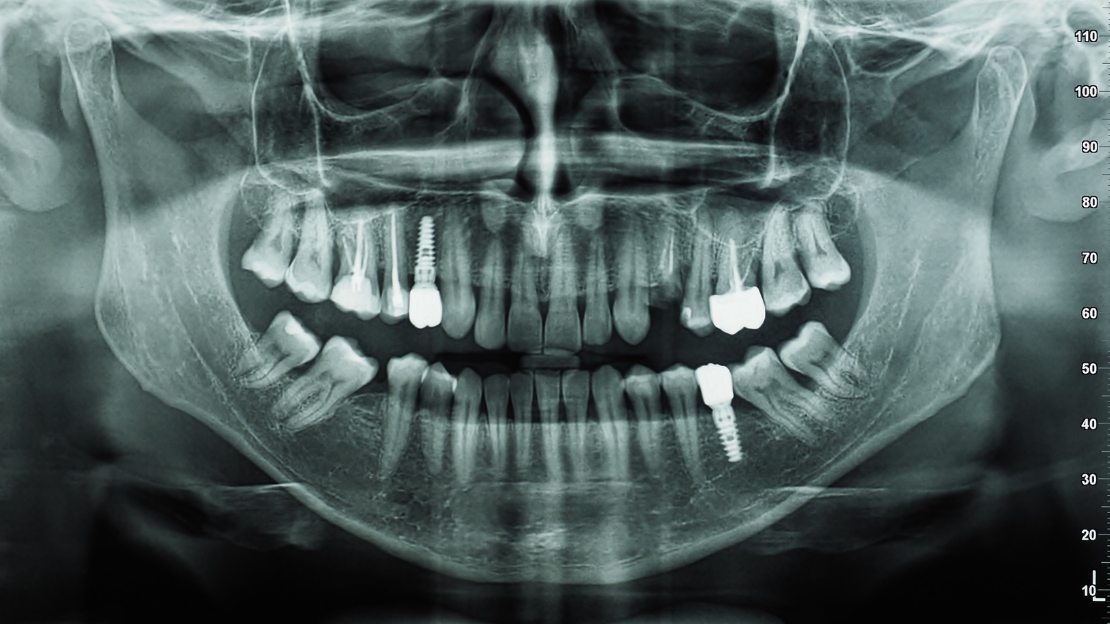Root canals often carry a reputation for being painful and daunting, but this common dental procedure is a safe, effective way to save a damaged tooth and restore your oral health. Misconceptions about root canals can cause unnecessary anxiety, preventing people from seeking timely treatment. At a time when dental emergencies can arise unexpectedly, understanding the truth about root canals—what to expect and why they’re safe—can empower you to make informed decisions for your smile. This blog debunks myths, outlines the procedure, and provides practical tips to ensure a smooth experience, helping you maintain a healthy, pain-free smile.
Why Root Canals Are Necessary
A root canal is a dental procedure designed to treat infection or damage within a tooth’s pulp—the soft tissue containing nerves, blood vessels, and connective tissue. When the pulp becomes infected due to deep decay, cracks, trauma, or repeated dental procedures, it can cause severe pain, swelling, or even an abscess. Left untreated, the infection can spread, leading to tooth loss or systemic health issues. Root canals save the tooth by removing the infected pulp, cleaning the inner chamber, and sealing it to prevent further damage.
Root canal safety is well-established, thanks to modern dental techniques and technology. Contrary to outdated myths, root canals are not inherently painful; they are performed to relieve dental pain. With advancements like local anesthesia and precision tools, endodontic treatment is now routine, efficient, and comfortable for most patients.
What to Expect During a Root Canal Procedure
Understanding the root canal procedure can ease anxiety and help you feel prepared. Here’s a step-by-step breakdown of what to expect during a root canal:
- Initial Consultation and Diagnosis
Your dentist will begin with a thorough examination, often including X-rays, to assess the extent of the damage and confirm the need for a root canal. You may experience symptoms like persistent toothache, sensitivity to hot or cold, swelling, or gum tenderness. The dentist will discuss root canal safety and answer any questions to ensure you feel confident.
- Local Anesthesia for Comfort
To ensure a pain-free root canal, the dentist administers local anesthesia to numb the tooth and surrounding area. Most patients feel little to no discomfort during the procedure, thanks to modern anesthetics. Sedation options may be available for those with dental anxiety.
- Accessing the Tooth’s Pulp
The dentist places a protective dental dam around the tooth to keep the area clean and dry. They then create a small opening in the tooth’s crown to access the infected or damaged pulp.
- Cleaning and Shaping the Root Canals
Using specialized instruments, the dentist removes the infected pulp and cleans the root canals—the narrow channels within the tooth’s roots. This step eliminates bacteria and debris, ensuring the tooth is free of infection. The canals are then shaped to prepare for sealing.
- Filling and Sealing the Tooth
The cleaned canals are filled with a biocompatible material, typically gutta-percha, to seal them and prevent reinfection. The opening in the tooth is sealed with a temporary or permanent filling. In many cases, a crown is recommended to restore the tooth’s strength and appearance.
- Recovery and Follow-Up
Most patients experience minimal discomfort after a root canal, often manageable with over-the-counter pain relievers like ibuprofen. Your dentist will provide aftercare instructions and may schedule a follow-up to ensure proper healing or to place a permanent restoration, such as a crown.
The entire root canal procedure typically takes one to two visits, each lasting about 60–90 minutes, depending on the tooth’s complexity. With modern techniques, endodontic treatment near you is more efficient and comfortable than ever.
Why Root Canals Are Safe
Root canal safety is a common concern, but advancements in dentistry have made this procedure highly reliable. Here are the key reasons why root canals are safe and effective:
- Advanced Technology: Dentists use precision tools, digital imaging, and magnification to ensure accurate treatment, minimizing risks.
- Effective Anesthesia: Local anesthesia ensures a pain-free root canal, and sedation options are available for anxious patients.
- Sterile Techniques: Strict sterilization protocols prevent infection during the procedure.
- High Success Rate: Studies show root canals have a success rate of over 95%, with most treated teeth lasting a lifetime with proper care.
- Biocompatible Materials: The materials used, like gutta-percha, are safe and designed to integrate seamlessly with your body.
By choosing a skilled dentist for endodontic treatment near you, you can trust that the procedure will be performed with precision and care, prioritizing your comfort and safety.
Debunking Common Root Canal Myths
Misinformation about root canals fuels anxiety. Let’s address some common myths to clarify what to expect:
Myth 1: Root Canals Are Painful
Truth: Modern root canals are designed to relieve dental pain, not cause it. Anesthesia ensures a pain-free experience, and any post-procedure discomfort is typically mild and temporary.
Myth 2: Root Canals Cause Illness
Truth: There’s no scientific evidence linking root canals to systemic illnesses. This outdated myth stems from early 20th-century misconceptions. Root canal safety is well-documented, with millions of successful procedures performed annually.
Myth 3: It’s Better to Extract the Tooth
Truth: Saving your natural tooth with a root canal is preferable, as it preserves your bite, jaw structure, and smile aesthetics. Extractions can lead to additional costs for replacements like implants or bridges.
Myth 4: Root Canals Take Many Visits
Truth: Most root canals are completed in one or two visits, thanks to advanced techniques and equipment.
Tips for a Smooth Root Canal Experience
To ensure a successful and pain-free root canal, follow these expert tips:
- Seek Treatment Early: Don’t delay if you experience dental pain, sensitivity, or swelling. Early intervention prevents complications and may simplify the root canal procedure.
- Choose an Experienced Dentist: Look for a practice offering endodontic treatment near you with a reputation for patient-centered care and advanced technology.
- Follow Aftercare Instructions: Avoid chewing on the treated tooth until fully restored, maintain good oral hygiene, and take prescribed medications as directed.
- Maintain Regular Dental Visits: Routine checkups help detect issues early, reducing the need for future root canals.
- Manage Dental Anxiety: Discuss sedation options or relaxation techniques with your dentist to ensure a comfortable experience.
How to Prevent the Need for Future Root Canals
Root canals are safe and effective, and preventing dental issues is always the best approach. Here are proactive steps to protect your oral health:
- Brush and Floss Daily: Brush twice daily with fluoride toothpaste and floss to remove plaque and prevent decay.
- Limit Sugary Foods and Drinks: Reduce consumption of sugary snacks and beverages, which contribute to cavities and pulp damage.
- Wear a Mouthguard: If you play sports or grind your teeth at night, a custom mouthguard can protect your teeth from trauma.
- Attend Regular Checkups: Biannual dental visits allow your dentist to catch decay or damage early, preventing the need for endodontic treatment.
- Stay Hydrated: Drinking water helps rinse away bacteria and supports saliva production, a natural defense against decay.
Trust Maple Hill Family Dentistry for Your Root Canal Needs
When it comes to addressing dental pain or considering a root canal, you deserve a trusted team that prioritizes your comfort and oral health. At Maple Hill Family Dentistry, our experienced dentists specialize in pain-free root canals and comprehensive endodontic treatment near you. Using state-of-the-art technology and a patient-centered approach, we ensure every root canal procedure is safe, efficient, and tailored to your needs. Our team is dedicated to debunking myths, easing anxiety, and delivering exceptional care for patients of all ages.
Don’t let dental pain hold you back from smiling confidently. Schedule an appointment with Maple Hill Family Dentistry today to experience expert care and personalized solutions. Whether you need a root canal or routine dental care, our skilled professionals are here to help you achieve a healthy, pain-free smile.
FAQs About Root Canals
Q: Are root canals painful?
A: Modern root canals are typically pain-free due to effective local anesthesia. The procedure relieves dental pain caused by infection or damage, and any post-treatment discomfort is usually mild and manageable.
Q: How long does a root canal procedure take?
A: Most root canals are completed in one to two visits, with each session lasting 60–90 minutes, depending on the tooth’s complexity.
Q: Is a root canal safe for everyone?
A: Root canal safety is well-established for most patients. Your dentist will evaluate your health and discuss any specific concerns, such as allergies or medical conditions, to ensure a safe procedure.
Q: How do I know if I need a root canal?
A: Symptoms like severe toothache, prolonged sensitivity to hot or cold, swelling, or gum tenderness may indicate the need for a root canal. Contact a dentist offering endodontic treatment near you for a diagnosis.
Q: Can I avoid a root canal by extracting the tooth?
A: While extraction is an option, saving your natural tooth with a root canal is often preferable to maintain your bite and avoid costly replacements like implants or bridges.
Q: How can I find a trusted dentist for a root canal?
A: Look for a practice with experienced dentists, modern technology, and positive patient reviews. Maple Hill Family Dentistry offers expert, pain-free root canal procedures tailored to your needs.






